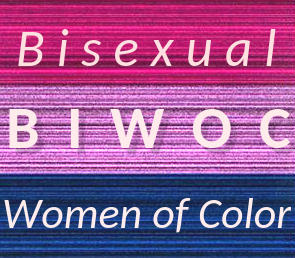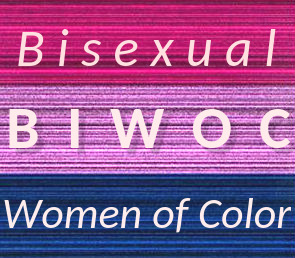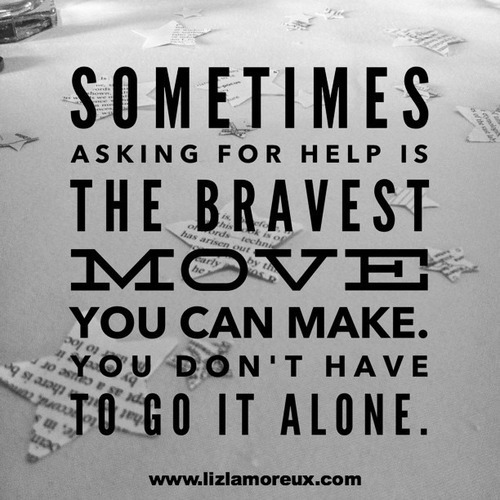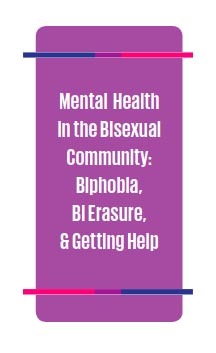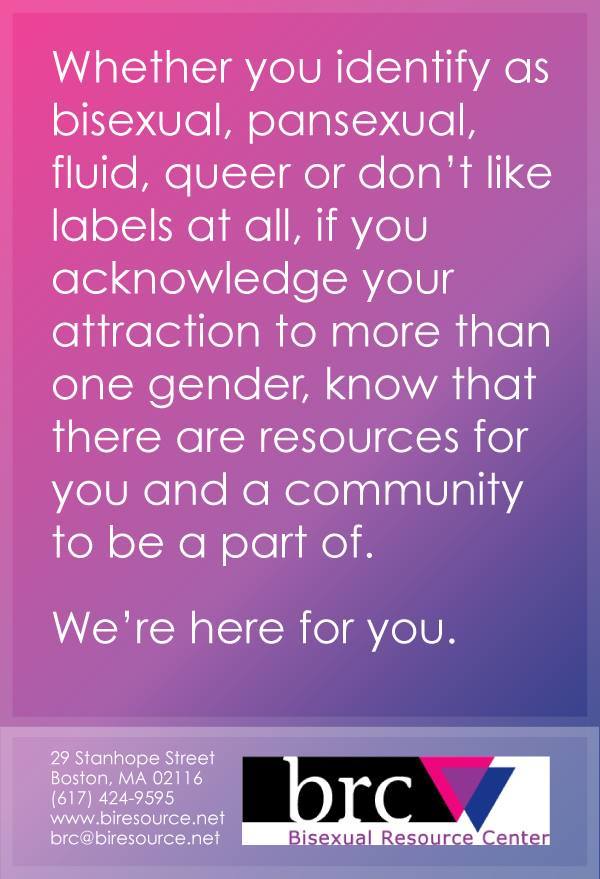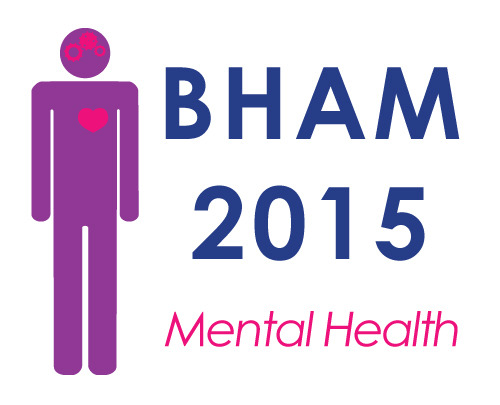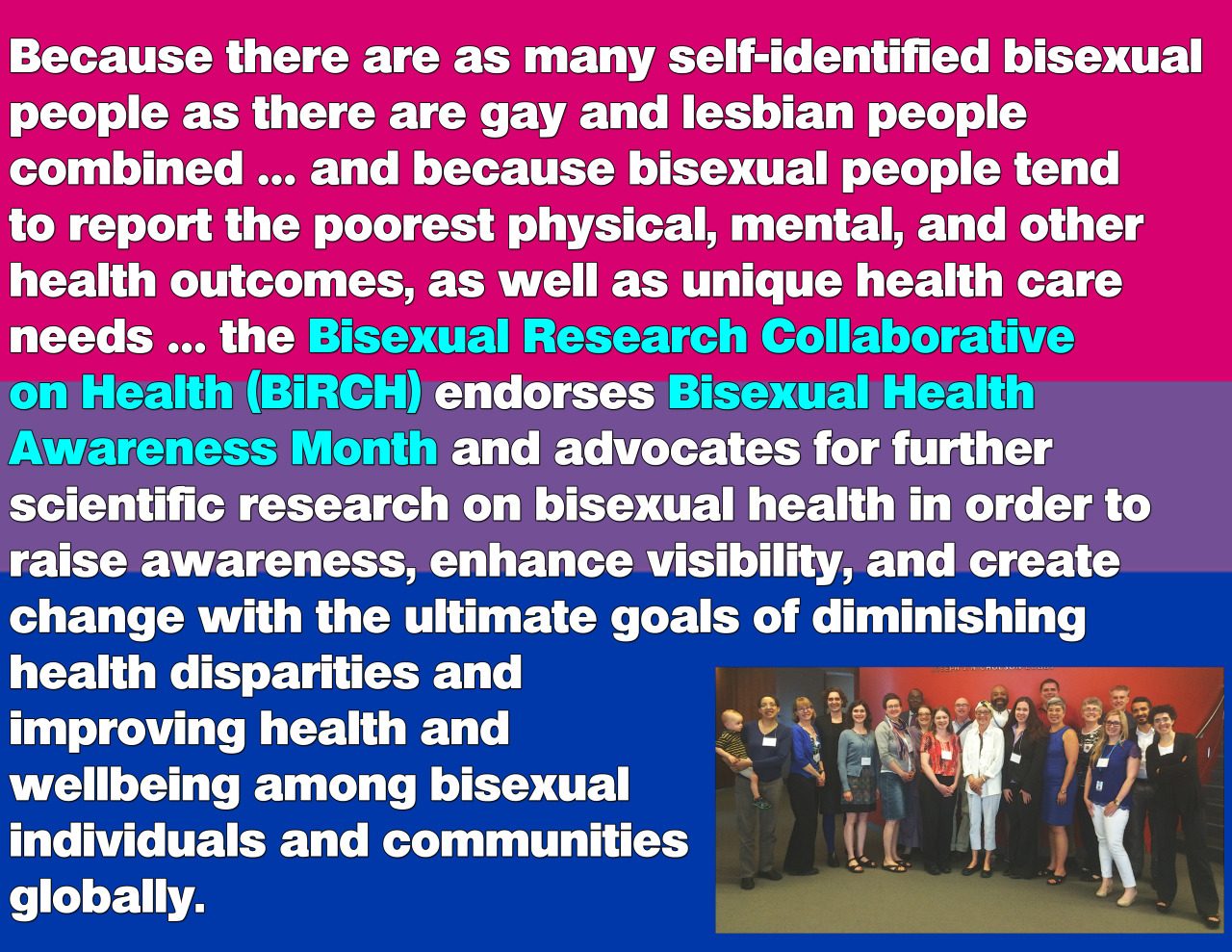How to Give Emotional Support to Bi Women of Color Guide
by Gwendolyn Fougy Henry, EdM, MSLIS.
Bi women of color are self-identified trans, non-binary, and cis gender people who identify with their own personal definition of womanhood. We possess the
capacity to form attractions to more than one gender and agender
people. We identify with a cultural, ethnic, or racial background of
Native, Indigenous, Aboriginal, Asian, Pacific Islander, African,
Latina/Latinx/Hispanic, Multiracial, and Biracial heritage. Bi women of
color have profound beauty and many wonderful qualities including
various gender identities such as Two-Spirit, genderfluid, genderqueer,
bigender, androgyne, trans, non-binary and cis. We have a spectrum of
skin tones; beige, light brown, gold, mahogany, brown and ebony hues.
We also face a lot of racism, colorism, classism, sexism, misogyny,
ageism, mental illness, biphobia, transphobia as well as health
disparities. We need emotional support, and although many of us do not
know how to give it, we deeply desire to receive it.
Emotional support is an interpersonal skill that allows us to offer comfort and allyship to others when they are in pain and also when they experience moments of joy. Unfortunately, many of us don’t have the empathetic active listening skills to be able to provide emotional support. Many of us have never been taught how to use empathetic active listening, and many of us don’t have the physical or mental energy nor interest to learn those skills as we are often busy tending to other areas in our daily lives including dealing with the isms and bigotry as described above.
In order for the cycle of give-and-receive to be fulfilled, each individual is responsible to learn how to give emotional support. These tips can get you started and help you on your way of giving to others so they can also can give to you:
1. Self-Examination - Get in-tuned with your body and mind. Be honest about your interpersonal skill set. It’s natural to feel defensive, guarded or even anxious about assessing your abilities. Be gentle with yourself as you begin the process of self-examination. Objectively evaluate what types of support you give and get from others in your life, as well as how often or how little you give and receive them.
- Social services - Examples include providing food, a couch or bed to sleep on, a lift/ride, or a loan or money when needed.
- Emotional services - Examples include providing a non-judgmental ear, empathy, compassion, a hug, or undivided attention.

2. Boost your Emotional Intelligence - Observe other people to get cues on what they may need from you.
- Learn to recognize the tone in someone’s voice, email, text, or tweet/post.
- Observe facial expressions and discern feelings such as anger, frustration, sadness, or confusion.
- Ask for clarification if unsure. An example of this is “I’m not understanding, what do you mean when you said xyz?”

3.
Learn active listening skills - Active listening and empathy is key to
any healthy relationship. Being able to park your own bias,
frustrations, impulse to give quick advice in order to be fully present
to others is a valuable skill.
- Imagine you are the other person, including their gender, sexual orientation, disability, and other background information. This is a painful process, but it will give you a sense of what the other person is dealing with.
- Relax your body, sit close to the other person, and receive their information attentively.
- Make sounds every now and then to reassure the speaker you are paying attention. Examples include "Ohh, I understand”, “Ahh”, and nodding.
- Don’t ask them questions or for them to explain themselves
- Mirror back what they say when appropriate. An example could be “So what you are saying is _____. Did I understand you correctly?”
- Thank them for sharing and that you are honored to be on the receiving end of what they shared with you. Acknowledge that it can be difficult and scary to share such information, feelings, etc.
- Assure them they you will keep the information confidential. When offering emotional support it is extremely important to keep whatever the person shares private. Exceptions are only if they have plans to harm themselves or someone else.
- Ask them if they want your feedback, opinion/suggestion, or even a hug. If they ask for feedback and you don’t know what to say, you can respond with “I don’t have specific feedback but I want you to know that I recognize your pain and am a witness to your experience.” If they say no to a hug, respect their choice.

4. Give - Although many of us are givers, often we are not giving with healthy boundaries or giving what others actually need.
- Ask what the person needs. If they don’t know, tell them you are there for them and provide them with some options. Start with the basics, such as offering them your time and affection. Tell them “I’m here for support if you ever want to share.”
- Spend quality time with the other person. Call them to make a voice connection or initiate to take them out for a walk or for coffee/tea.
- Learn to give affection, such as gentle hugs, if the other person is comfortable receiving it. Offer your physical shoulder so your friend can lean on it. Rub their back. Ask if it’s okay to hold their hand while they talk. Always ask before doing such as everyone has their own comfort level with touch.

5. Follow-Up
- Don’t let time pass by too long before reaching out, especially if
someone is going through a tough time [e.g. grief, abortion,
miscarriage, gender confirmation surgery, accident, sexual assault, a
relationship breakup, or loss of a job]. Reach out and ask them every 3
to 5 days the following questions.
- “How are you feeling today?”
- “How did you sleep last night?”
- “What are your plans for today?”
- “What do you need?”

Gwendolyn Fougy Henry, Ed.M., MSLIS is a writer, librarian, archivist, mental health advocate, and vegan personal chef. She is the founder and director of Bisexual Women of Color (BIWOC), an organization based in Boston, MA, USA that provides online and in-person support to bi women of color. Gwendolyn is also a Board Member with the Bisexual Resource Center. More information about Gwendolyn and her writings can be found at: gwendolynwriter.tumblr.com.
For more information about Bisexual Women of Color (BIWOC), including details about volunteering with them, visit: http://biwoc.tumblr.com/about or email biwocinfo@gmail.com
This guide was written in support of Bisexual Health Awareness Month (BHAM), a social media campaign dedicated to raising awareness about the bisexual community’s social, economic, and health disparities. More information on BHAM can be found at: https://bihealthmonth.wordpress.com

This work is licensed under a Creative Commons Attribution-NonCommercial-NoDerivatives 4.0 International License.

